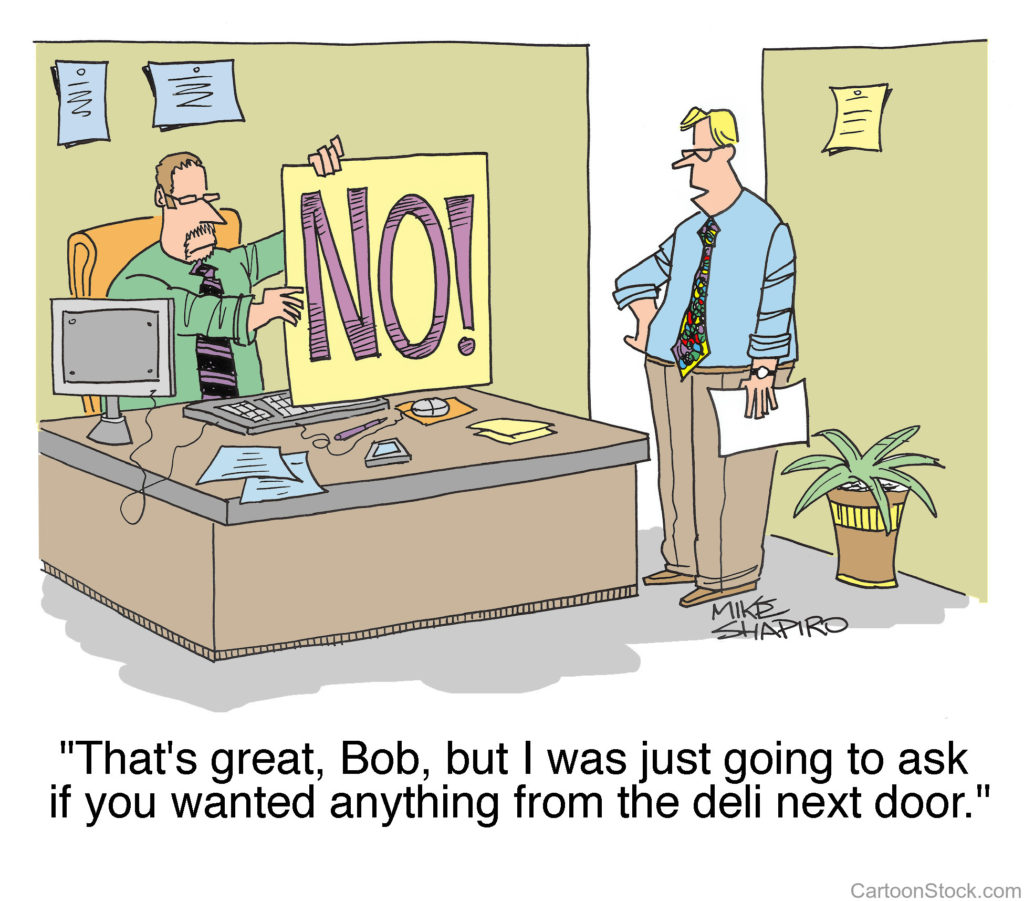 In a 50/50 relationship—where each person has equal authority—a “no” is more powerful than a “yes.” For instance, in a marriage in which the 50/50 rule is in place, if one spouse says, “Let’s go out to eat on Friday,” and the other says, “No; I don’t want to,” the latter rules. “No” trumps “yes.”
In a 50/50 relationship—where each person has equal authority—a “no” is more powerful than a “yes.” For instance, in a marriage in which the 50/50 rule is in place, if one spouse says, “Let’s go out to eat on Friday,” and the other says, “No; I don’t want to,” the latter rules. “No” trumps “yes.”
This seems unfair to me.
This quirkish adulteration of fairness is particularly potent and unsavory when one person in the 50/50 relationship tends to be negative and pessimistic, or controlling, or indecisive, or inordinately passive.
How can we avoid this situation?
- One obvious way is to avoid 50/50 relationships. Just one degree—a 51/49 relationship—can make a difference. (Just hope you possess that extra one percent.)
- Spread the power among three or more people, perhaps a 33/33/34 scenario, so that one person cannot control.
- Establish a measure of independence in decision making; don’t frame an issue in terms that require consensus: “I’m going out to eat on Friday. Would you like to join me?”
- Carefully craft the initial statement such that you can say “no.” You: “What would you like to do on Friday for dinner?” Other person’s reply: “Stay at home.” You: “No, I don’t want to do that.” In which case your “no” might prevail over the other person’s preference.
I’m not advocating that we become manipulative and self-serving. I am suggesting that we avoid being manipulated and controlled and that we establish balance of power in mutual relationships.
[reminder]What are your thoughts about this essay?[/reminder]

Say yes more often than no
Thanks, Ward. That’s a good suggestion.
Hi Don,
This brings to mind a girlfriend of mine who was going through marriage classes with her fiancee at church. She shared with me that her priest had shared with them that it should be
a 100/100 percent rule. I had never heard that, but always remembered it. I thought
that was a pretty good idea. I believe being positive on a daily basis and saying yes as Ward states is good.
Thanks.
Myreta, Thanks for sharing your thoughts. I’ve not heard of the 100/100 idea, but it still gives a “no” more power than a “yes.” Don